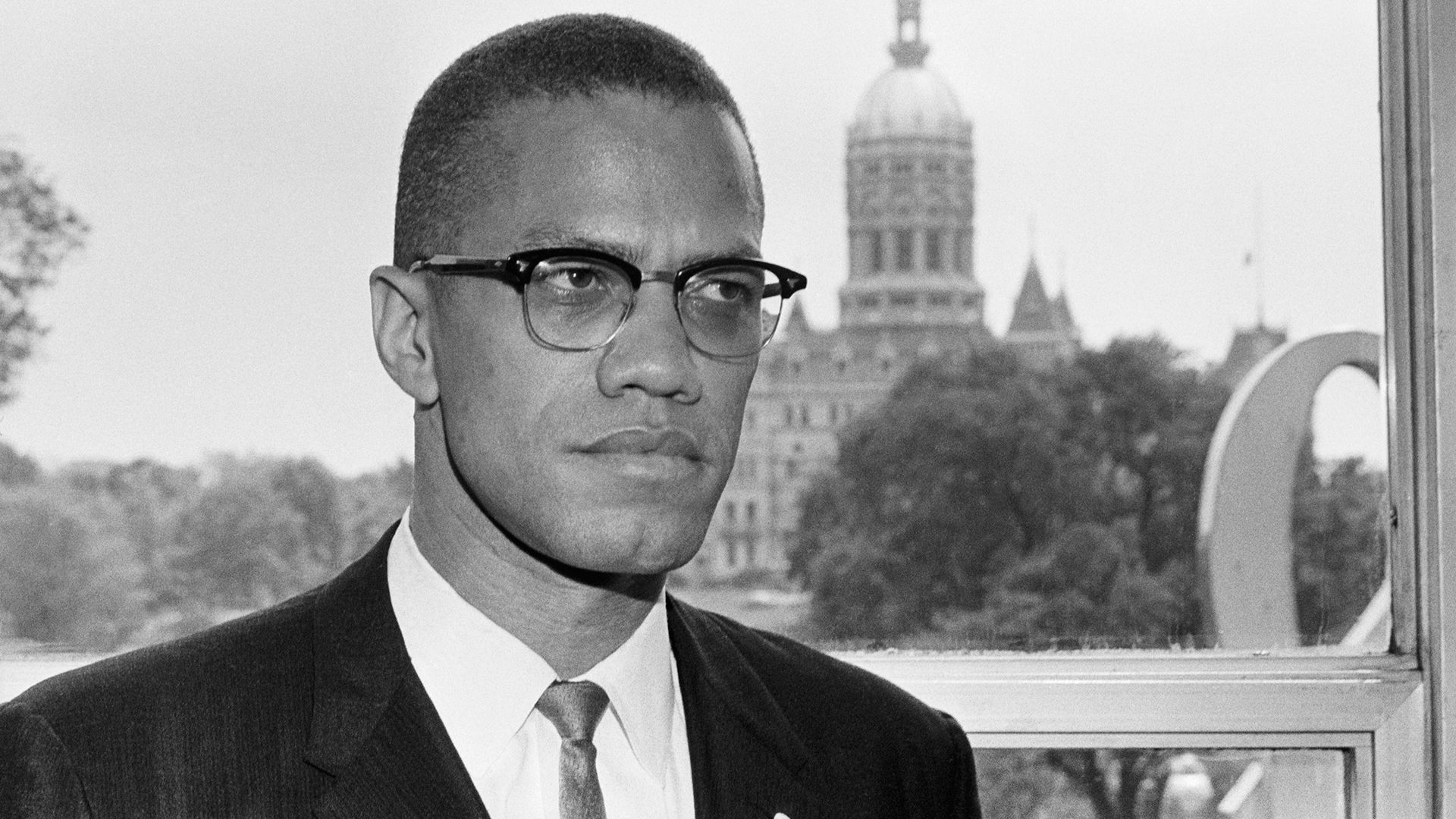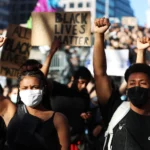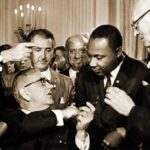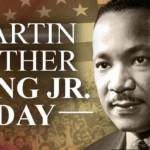Introduction: Unveiling the Complex Persona of Malcolm X
Malcolm X, born Malcolm Little on May 19, 1925, emerged as a towering figure in the mid-20th century, leaving an indelible mark on the struggle for civil rights, equality, and human rights. This comprehensive exploration delves into the life and legacy of Malcolm X, covering his early years, transformation, advocacy for justice, and enduring impact on contemporary discussions surrounding racial equality.
I. Early Life and Formative Years
A. Childhood and Family Background
Born in Omaha, Nebraska, Malcolm X experienced the harsh realities of racism early in life. His family, particularly his father’s activism, laid the groundwork for his later involvement in social justice movements.
B. Criminal Activity and Incarceration
Malcolm X’s early years were marked by criminal activity, leading to his incarceration. It was during this period that he discovered the Nation of Islam, sparking a transformative journey toward self-discovery.
II. Transformation Through the Nation of Islam
A. Adoption of the Nation of Islam’s Teachings
In prison, Malcolm X embraced the teachings of the Nation of Islam, led by Elijah Muhammad. The Nation of Islam provided a framework for understanding racial identity, self-discipline, and resistance to systemic oppression.
B. Renunciation of the “Slave Name”
Upon leaving prison, Malcolm X symbolically rejected his “slave name,” Little, and adopted the “X” to signify the unknown African name stolen during slavery. This act symbolized his rejection of the legacy of slavery and embrace of a new identity.
III. Civil Rights Advocacy and Black Empowerment
A. Role in the Nation of Islam
As a prominent minister within the Nation of Islam, Malcolm X advocated for black empowerment, economic self-sufficiency, and the rejection of white supremacy. His impassioned speeches attracted widespread attention.
B. Departure from the Nation of Islam
Malcolm X’s growing disillusionment with the Nation of Islam’s leadership and his desire for a broader, more inclusive approach to the civil rights struggle led to his departure from the organization in 1964.
IV. Global Human Rights Advocacy
A. Pilgrimage to Mecca and Ideological Shift
A pivotal moment in Malcolm X’s life was his pilgrimage to Mecca in 1964, which exposed him to a diverse and inclusive Islam. This experience catalyzed a shift in his views toward collaboration and unity among people of all races.
B. Ongoing Advocacy for Justice
After leaving the Nation of Islam, Malcolm X continued to advocate for justice, denouncing racism, and addressing international human rights issues. His speeches and writings resonated with audiences globally.
V. Assassination and Legacy
A. Tragic End in 1965
Malcolm X’s life was tragically cut short when he was assassinated on February 21, 1965, during a speaking engagement in New York. His assassination left a void in the civil rights movement.
B. Enduring Legacy
Malcolm X’s legacy endures as a symbol of courage, resilience, and uncompromising advocacy for justice. His life and teachings continue to inspire generations of activists fighting against racial inequality.
VI. Common Questions about Malcolm X
- Why did Malcolm X reject his “slave name”?
- Malcolm X rejected his “slave name” to symbolize a break from the legacy of slavery and the imposition of European names on African Americans.
- How did Malcolm X’s early experiences shape his worldview?
- Malcolm X’s early experiences with racism and his family’s activism influenced his commitment to challenging systemic oppression.
- What was the significance of Malcolm X’s pilgrimage to Mecca?
- The pilgrimage exposed Malcolm X to diverse interpretations of Islam and fostered a shift in his views towards inclusivity and collaboration among people of all races.
- Why did Malcolm X leave the Nation of Islam?
- Malcolm X left the Nation of Islam due to ideological differences, growing disillusionment with its leadership, and a desire for a more inclusive approach to civil rights.
- How did Malcolm X’s advocacy differ from other civil rights leaders?
- Malcolm X advocated for black empowerment, economic self-sufficiency, and self-defense, differing from leaders who endorsed nonviolent resistance.
- What impact did Malcolm X have on the international stage?
- Malcolm X addressed international human rights issues and became a global figure, influencing movements for justice and equality worldwide.
- What role did Malcolm X play in addressing police brutality?
- Malcolm X highlighted police brutality and advocated for self-defense as a response to systemic oppression and racial injustice.
- How did Malcolm X’s assassination impact the civil rights movement?
- His assassination left a void in the movement, but his teachings continued to influence activists, inspiring ongoing efforts for justice.
- What are some key lessons from Malcolm X’s life and activism?
- Malcolm X’s life teaches lessons about self-determination, resilience, the importance of education, and the need for collective empowerment to combat systemic oppression.
- Did Malcolm X collaborate with other civil rights leaders?
- While he initially diverged from other leaders, Malcolm X expressed a willingness to collaborate with them after his pilgrimage to Mecca.
- How has Malcolm X’s legacy evolved over time?
- Malcolm X’s legacy has evolved into a symbol of uncompromising advocacy for justice, inspiring diverse movements beyond the civil rights era.
- What controversies surrounded Malcolm X’s advocacy for self-defense?
- Advocacy for self-defense generated controversy, with critics viewing it as a departure from the nonviolent approach of other civil rights leaders.
- What are Malcolm X’s views on education?
- Malcolm X emphasized the transformative power of education, urging African Americans to seek knowledge and reclaim their history.
- How did Malcolm X contribute to changing stereotypes about African Americans?
- Malcolm X challenged stereotypes by promoting self-respect, cultural pride, and a rejection of negative portrayals of African Americans.
- Did Malcolm X’s ideology change after leaving the Nation of Islam?
- Yes, his views evolved towards inclusivity, collaboration, and a more comprehensive approach to civil rights after leaving the Nation of Islam.
- What is Malcolm X’s relevance to contemporary social justice movements?
- Malcolm X remains relevant, with his teachings influencing contemporary movements advocating for racial equality, justice, and human rights.
- How did Malcolm X balance religious beliefs with his advocacy for justice?
- Malcolm X’s religious beliefs were intertwined with his advocacy, as he sought to align spiritual principles with the fight against injustice.
- Did Malcolm X influence later leaders in the civil rights movement?
- Malcolm X influenced later leaders, with his legacy contributing to the evolving strategies and ideologies within the civil rights movement.
- What is Malcolm X’s enduring impact on black identity and pride?
- Malcolm X’s emphasis on black empowerment, cultural pride, and reclaiming identity has had a lasting impact on fostering a sense of pride within the black community.
- How can individuals engage with Malcolm X’s legacy today?
- Engaging with Malcolm X’s legacy involves reading his speeches, writings, and autobiography, participating in discussions on racial justice, and supporting movements for equality.
Conclusion: A Complex Legacy of Courage and Advocacy
In conclusion, Malcolm X’s life was marked by a complex journey of transformation, advocacy, and a steadfast commitment to justice. His enduring legacy serves as a beacon for those navigating the ongoing struggles for equality, human rights, and the recognition of inherent dignity. Malcolm X remains an influential figure whose lessons and principles continue to resonate in the contemporary discourse on racial justice.





